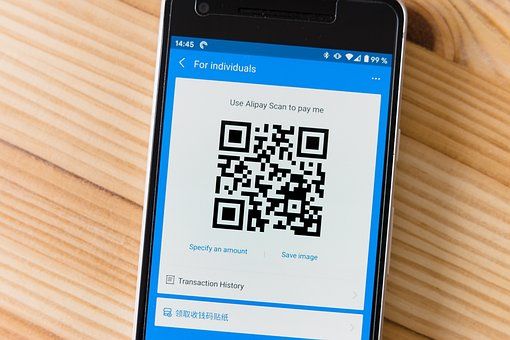Advantages Of Digital Banks Over Traditional Banks

The conventional banking system in Nigeria has a worthy competitor in financial technology companies popularly known as Fintech. Fintech is responsible for the digital banks such as Kuda, Alat, VDF, OneBank, etc. that we see today. We cannot undermine the part that traditional banks have played in developing the country's economy, they will always remain relevant to that end. However, consumers can attest to the fact that digital banks have raised the bar of financial services with technology.
Traditional banks
Traditional banks are popularly known as commercial banks, they are the financial service providers that operate physical banking activities. Traditional commercial banks have been in existence since 1891, when, African Banking Corporation (A.B.C.), the first commercial bank was established in Lagos. They were the main source of providing financial services to Nigerians under the regulation of the CBN. Traditional banks are tasked with Money Generating roles, Service Rendering Roles. They make use of paper documents to carry out financial services like account opening, debit card issuance, cash deposit or withdrawal, etc.
They initially were known to be heavily dependent on manual procedures, but recently have a mix of technology solutions to simplify banking services. In other words, traditional banks still use paper forms for customers, but they have also provided the options of USSD codes, banking apps, and web services for their tech-inclined customers. This electronic shift in traditional banking service tools began taking effect when the Central Bank of Nigeria started implementing the cashless policy in 2012. Also, the increased popularity of Fintech after the Covid-19 pandemic also forced traditional banks to adopt both digital tools for providing financial services.
Commercial banks usually have one regional headquarters in different states and countries, own branded ATMs lodged in some streets of the country, and have face-to-face customer service. Mobile or internet banking are complimentary services promoted by traditional banks.
Digital banks

The primary difference between digital banks and commercial banks is that all banking processes are online. Digital banks are not just personal finance apps or brands that offer certain financial services, they are companies that provide the full banking experience online. They have no physical branch for customers to queue in, but similar offers services like those available at physical banks.
Digital banks are fast becoming the new normal for many people in the last couple of years. The possibility of carrying out non-physical banking actions became clearer during the covid-19 pandemic. They offer savings, investments, loans, payments, and other banking services. Digital banks are regulated by the CBN and FDIC.
Advantages of Digital banks over Traditional banks
Reliability of Infrastructure
The implementation of the cashless policy by the CBN has since placed massive pressure on the network of commercial banks. Their ability to provide e-payment services has been tested and proven to be weak. More recently in the wake of the cash scarcity in Nigeria, more Nigerians turned to digital banks for payment solutions. Traditional banks experienced a high volume of transactions online that their infrastructure couldn't handle, causing a lot of failed transactions for customers. Since digital banks have already been designed to operate online, they have a more reliable banking infrastructure for processing transactions quickly.
Favorable interest rates
Traditional banks are not designed to support small businesses. Unlike digital banks, they have numerous charges, lengthy account opening processes for businesses, and a lack of access to loans and other credit facilities meant for SMEs. The commercial bank lending rates have increased from 11.5% in 2021 to 13.8% as of January 2023. SMEs can find interest rates for loans as low as 10% with digital banks. Savings and fixed deposit interest rates for customers are much higher in digital banks. Kuda Bank offers up to 15% interest on deposits whereas commercial banks are currently fixed below 10%
Quick and Convenient Account opening
Digital banks enable customers open accounts from their mobile devices in a few minutes. They can enter all relevant account information, and upload credentials and the bank software using remote review services from ID and Optical Character Recognition (OCR), which automatically reviews and validates documents. Commercial banks have optimized their services for magic code account openings via mobile phones, but not without a trip to the bank to complete the process.
Ease of Payments
Digital banking offers Peer-to-Peer payments by enabling an almost instant money transfer between devices. Digital banks have features like scan-to-pay (QR codes), Virtual cards, etc. that make payments easier. The interbank settlement system has not made payments via commercial banks very reliable. Also, activating recurring payments with digital banks is easier when a customer enables scheduled payments. With traditional banks, customers need to visit banks to fill out a form to authorize a standing order for payments they are bound to repeat regularly.
Extremely low transaction and maintenance fees
Traditional banks are known for charging numerous exorbitant fees. There are SMS charges, card maintenance fees, card purchase or renewal fees, atm withdrawal fees, mobile transfer commissions, USSD transfer fees, balance inquiry fees, and even more recently monthly Electronic transaction charges, among others. Digital banks charge little or no fees for their financial services. You can make free transfers, download bank statements, and check your account balance without any charge. Although digital banks do not have their branded ATMs, withdrawal from POS agents of these banks does not attract any additional charge. Also, debit cards issued by digital banks are free.
Convenient customer service
Commercial banks have a history of piling customer complaints without quick resolutions. Customers often have to make multiple trips to the bank to enforce changes they have complained about. Since the customer service of Digital banks can be reached via online media like emails, or chatbots, the resolution of customer issues is seamless and convenient. Digital banks also run 24-hour customer service online, but traditional banks have limited time at their locations. After the process of applying for a debit card at a commercial bank location, you may not receive it instantly. Digital banks bypass that with virtual cards or deliver customer's debit card after online application.
Encouraging Personal Finance Management
With digital banks, consumers are now inclined to stay in the know of their financial affairs. Traditional banks have had a monotony of power in financial knowledge and most of the time carry out the financial procedures for customers. Digital banks are designed with personal finance management tools and features that help consumers improve their financial behavior and make healthier money decisions.
Safety of Money and Account Data
With traditional banks, a lot of cash is kept in vaults. These banks are susceptible to fire accidents, loss of cash in armed robbery attacks, etc. There have also been several social media outbursts of customers getting alerts of debits they did not authorize. Digital banks are built for operating online and in event of stolen funds by hackers, recipients can be traced. Cash thefts have a low recovery rate. Digital banks also have multi-factor biometric authentication, location-based security, suspicious activity notifications, card tokenization, and predictive fraud detection systems that guard against a security breach.



